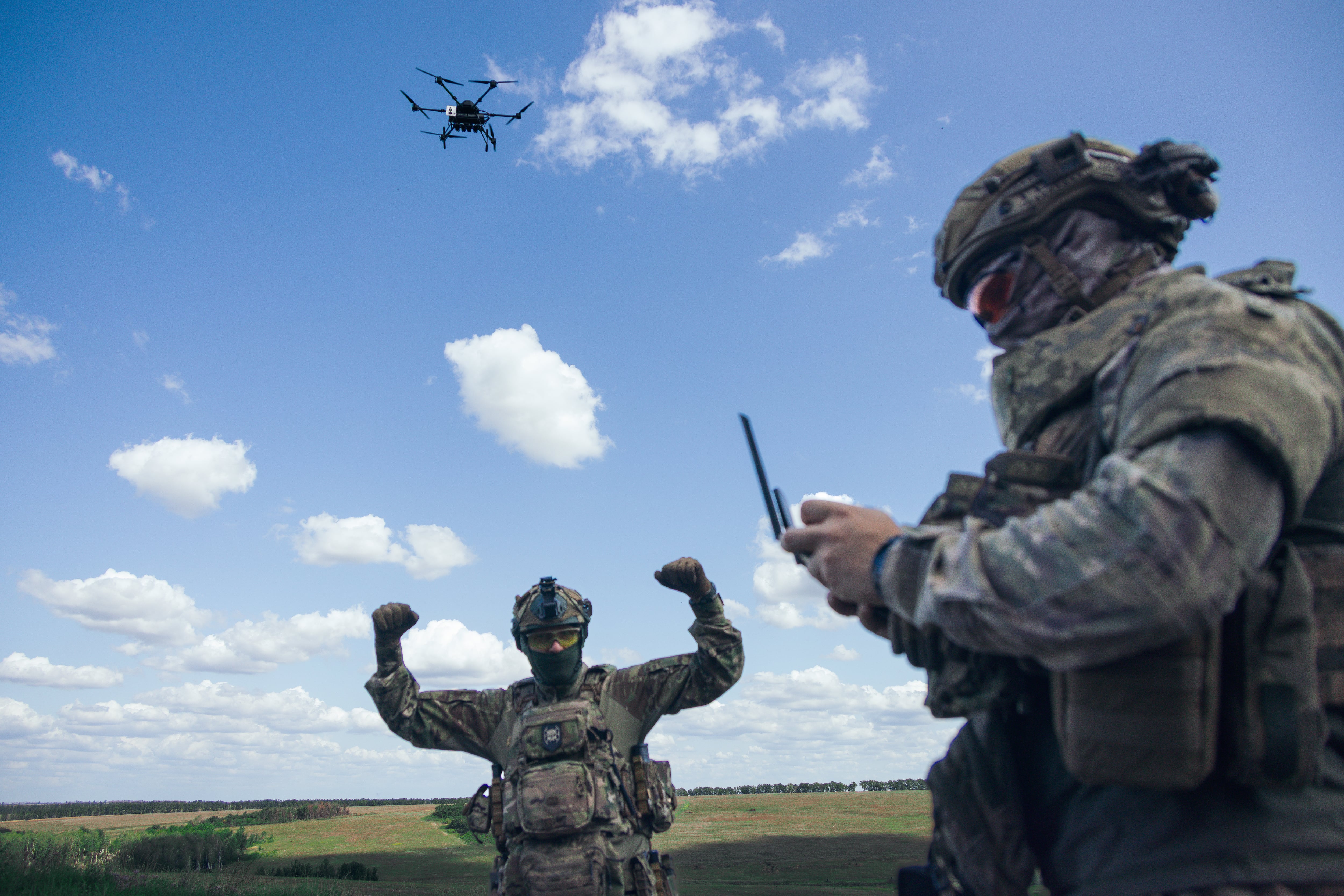"The Senator and his family are reviewing further treatment options with his Mayo Clinic care team. Treatment options may include a combination of chemotherapy and radiation," the statement reads. "The Senator's doctors say he is recovering from his surgery 'amazingly well' and his underlying health is excellent."
The diagnosis has the potential to sideline the famous Republican maverick, introduced to most Americans through his unsuccessful run for president against Barack Obama in 2008. With that stature, McCain has been the rare Republican to publicly stand up to President Donald Trump and, as SASC chair, he has been a unique champion for both defense dollars and defense reform.
It would be difficult to overstate how central McCain is to defense policy. A senator since 1987, McCain has put his stamp on countless defense policy bills. In recent years, McCain spearheaded a series of ambitious Pentagon overhauls to place more acquisition power in the hands of the armed services chiefs and, won a restructuring of the Pentagon's upper echelons due to begin next year.
As far as near-term concerns, the annual defense policy bill was in limbo even before the announcement Wednesday. GOP leaders in the Senate early in the day Wednesday said the bill is on hold until McCain returns from his medical leave.
The massive 2018 National Defense Authorization Act — which would authorize $700 billion in national security spending — has been stuck in the queue behind the GOP's erratic efforts to repeal and replace the Affordable Care Act. Once the NDAA's taken up, the typically bipartisan bill could represent an easy win for a struggling Republican conference.
But GOP leaders said the NDAA's progress was linked to McCain's return to Washington. He has been recuperating at home in Arizona since he underwent a surgery Friday that involved doctors removing a small piece of his skull.
"We need to get Sen. McCain back and hopefully that will be next week, but that's one of the keys," to advancing the NDAA, said the upper chamber's No. 2 Republican, Sen. John Cornyn, of Texas.
Cornyn, the Senate majority whip, said he didn't think the bill could proceed without McCain and that leadership would hold off out of respect to him as chairman.
The physical effort of shepherding the bill has in the past for McCain involved hours of standing and speaking on the Senate floor, debating other senators and fending off partisan amendments that might derail the bill.
Lawmakers on Wednesday were upbeat.
McCain's friend Sen. Lindsey Graham, R-S.C., said McCain sounded "really strong" in a phone conversation Tuesday, but he emphasized McCain will listen to his doctors. "He's obviously watching what's going on here, he's anxious to get back, he'll come back as soon as the doctors let him," Graham said.
The GOP Conference vice-chair, Sen. John Thune, R-S.D., said the hope was the NDAA will be processed by the Senate before it takes its August recess, but he left open the possibility of waiting for McCain until afterward.
"We want to get it done in a timely way, so if we can't get it done in this work period, certainly September, but ultimately that will be the leader and Sen. McCain's call to make," Thune said.
Senate Majority Leader Mitch McConnell, R-Ky., previously cut back the recess by two weeks, but there has been speculation since the collapse of ACA repeal and replace efforts the recess may be back on.
Sen. Roy Blunt, the GOP Conference vice-chair, said that even if McCain's recovery takes longer than expected, Senate leadership could take up other items, like the re-authorization of federal drug statutes and re-authorization the Federal Aviation Agency.
"Having a debate on armed services re-authorization [without McCain] would be a last resort, and I don't think we'll get to the last resort," said Blunt, R-Mo. "I certainly hope he's back quickly and we'll benefit from him being here."
Rhode Island Sen. Jack Reed, the SASC's top Democrat, also hoped McCain would be able to participate, calling him "an essential part of the process."
"My sense is [McCain's doctors] are going to evaluate his ability to return," Reed said. "I hope [leadership] will wait until he comes back."
Oklahoma Republican Sen. Jim Inhofe, a senior member of the SASC who has been chairing the SASC in McCain's absence, suggested that Republicans would do well to get on with the NDAA, for a breather from healthcare—but only once McCain returns.
"We need to get on that as soon as possible, particularly with all the hysteria around healthcare," Inhofe said of the NDAA.
Inhofe said he believed McCain will return next week.
Email: jgould@defensenews.com
Joe Gould was the senior Pentagon reporter for Defense News, covering the intersection of national security policy, politics and the defense industry. He had previously served as Congress reporter.





